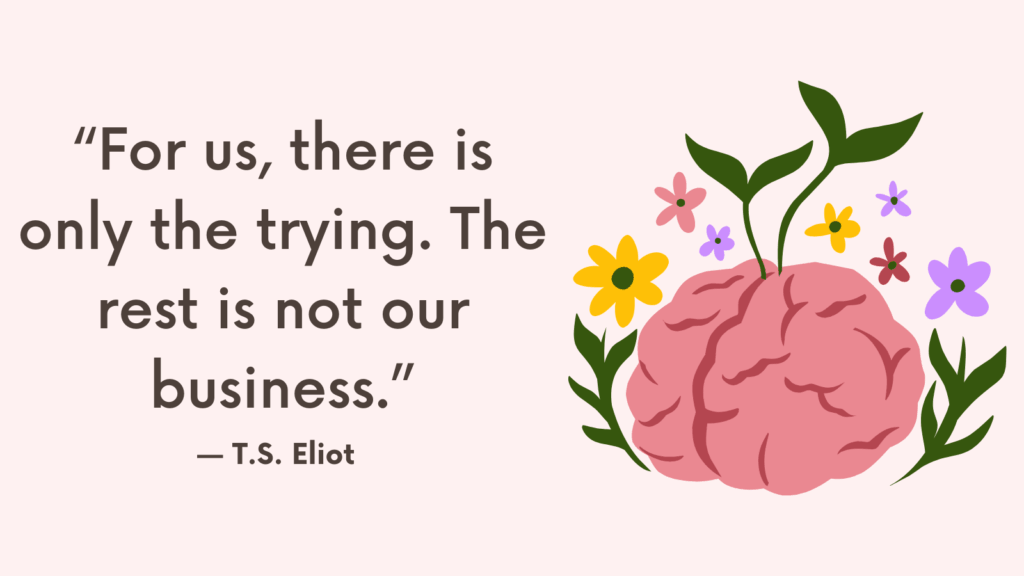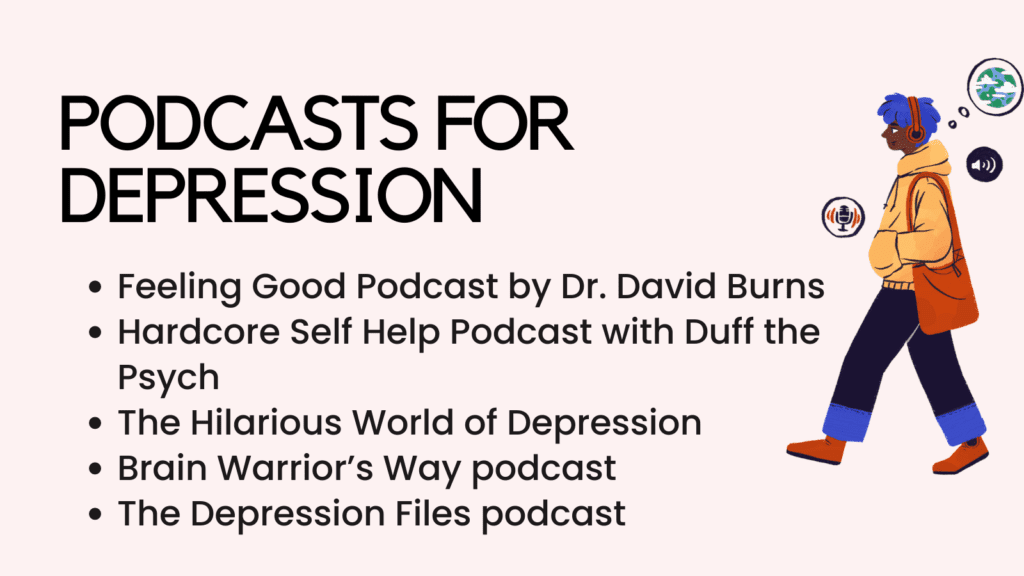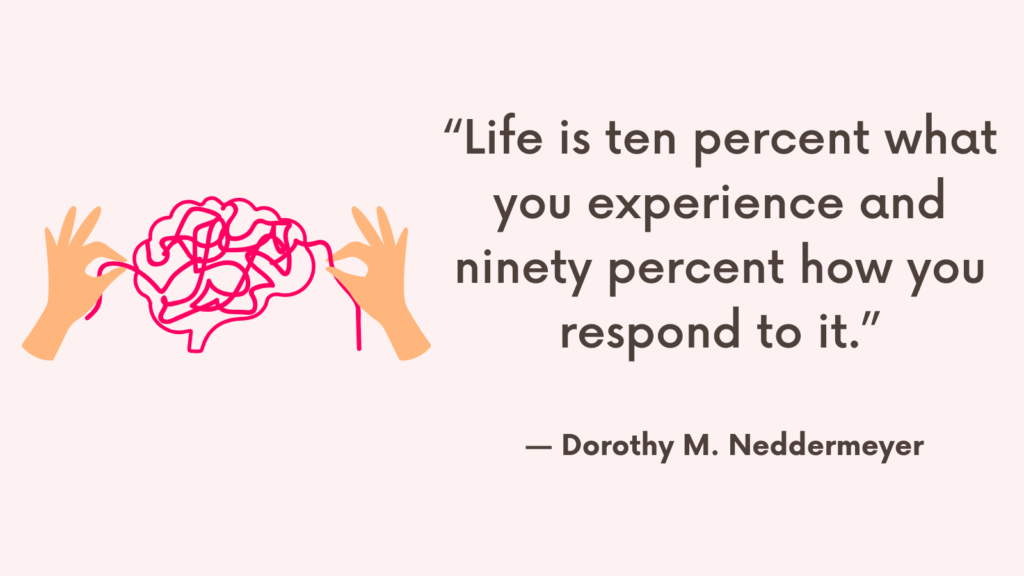In this post, you’re going to learn how to help an adult child with depression.
Signs of Depression
In the Diagnostic and Statistical Manual of Mental Disorders (DSM-5), which is a widely recognized manual used by mental health professionals, the criteria for diagnosing depression are outlined.
Here are the main signs or symptoms of depression according to the DSM-5:
1. Depressed mood: Persistent sadness, feelings of emptiness, or a general irritable mood.
2. Diminished interest or pleasure: A noticeable decrease in interest or enjoyment in activities that were previously enjoyable.
3. Significant weight loss or gain: Changes in appetite that lead to significant weight loss or gain unintentionally.
4. Sleep disturbances: Insomnia (difficulty falling asleep or staying asleep) or hypersomnia (excessive sleeping).
5. Psychomotor agitation or retardation: Observable changes in physical movements that are either noticeably agitated or slowed down.
6. Fatigue or loss of energy: Feelings of extreme tiredness or a lack of energy, even with minimal exertion.
7. Feelings of worthlessness or excessive guilt: Experiencing intense self-critical thoughts or feeling a sense of worthlessness or guilt without reasonable cause.
8. Difficulty concentrating or making decisions: Trouble focusing, making decisions, or experiencing cognitive difficulties.
9. Recurrent thoughts of death or suicide: Frequent thoughts of death, dying, or the desire to end one’s own life. This may or may not be accompanied by specific plans or attempts.
It is important to note that a diagnosis of depression requires the presence of several of these symptoms occurring nearly every day for at least two weeks, as well as clinically significant distress or impairment in functioning.
Related: Top 10 Gratitude Exercises To Practice Even When Depressed
Causes of Depression
The causes of depression can be complex and multifaceted, resulting from a combination of genetic, biological, environmental, and psychological factors.
Here are some commonly recognized factors that contribute to the development of depression:
1. Biological factors: Imbalances in certain brain chemicals, such as serotonin and norepinephrine, have been associated with depression. Genetic factors can also play a role, as individuals with a family history of depression are more likely to experience it themselves.
2. Psychological factors: Certain personality traits, such as low self-esteem, pessimism, or a tendency to ruminate on negative thoughts, can increase the risk of developing depression. Additionally, experiencing significant life stressors, trauma, or loss can contribute to the onset of depressive episodes.
3. Environmental factors: Adverse life events, such as the loss of a loved one, financial difficulties, relationship problems, or chronic stress, can trigger or exacerbate depressive symptoms. Living in an unsupportive or abusive environment can also contribute to the development of depression.
4. Cognitive factors: Negative thought patterns and distorted thinking can contribute to the maintenance of depressive symptoms. These may include cognitive biases, such as selectively focusing on negative aspects of oneself or the world, and interpreting events in a negative or self-blaming manner.
5. Physical health conditions: Certain medical conditions, such as chronic pain, hormonal imbalances, or chronic illnesses, can increase the risk of depression. Similarly, certain medications (e.g., some used for high blood pressure or corticosteroids) may have depressive side effects.
Related: High Functioning Depression Test (+Effective 3-Step Guide To Overcome High Functioning Depression)
How to Help an Adult Child with Depression?
Supporting an adult child with depression can be a challenging and delicate process. Here are some scientifically-supported suggestions that may help:
1. Encourage open communication
Depression can often make individuals feel isolated and alone, so creating a safe and comfortable space where they can express their thoughts and emotions without judgment is essential.
Listen attentively and be empathetic when they decide to open up about their struggles.
Avoid making assumptions or offering unsolicited advice, as these actions might reinforce feelings of frustration or hopelessness.
Instead, ask open-ended questions to show genuine interest in their experiences. For example, you could ask, “How have you been feeling lately?” or “What activities do you find that bring you some comfort?”
By fostering open communication, you can establish a stronger connection and provide much-needed support for your adult child’s journey toward healing and recovery.
Related: How To Validate Someone’s Feelings Without Agreeing? (+Examples of Validating Statements)
2. Educate yourself about depression
By gaining knowledge about the condition, its causes, symptoms, and available treatments, you will be better equipped to understand what your child is going through.
Take the time to learn about the different types of depression, such as major depressive disorder or persistent depressive disorder, and familiarize yourself with the potential triggers and risk factors.
This knowledge will enable you to approach conversations and situations with empathy and understanding.
Additionally, understanding the available treatment options, such as therapy or medications, will allow you to provide informed suggestions and support in seeking professional help when needed.
Educating yourself can also help dispel any misconceptions or stigmas surrounding depression, allowing you to offer a more compassionate and non-judgmental approach.
Related: Journal Prompts For Depression (+FREE Depression Worksheets PDF)
3. Validate their feelings
Often, individuals with depression may feel like their emotions are dismissed or invalidated, which can further exacerbate their feelings of isolation and hopelessness.
By acknowledging their pain and understanding that depression is a legitimate illness, you can create a safe space for them to express themselves openly.
Active listening is key in this process.
Encourage them to share their thoughts and emotions without judgment or criticism.
Let them know that you are there to support them unconditionally.
For example, you could say something like, “I can see that you are feeling down right now, and I want you to know that it’s completely okay to feel this way. Depression is an illness, and I understand that it can be incredibly challenging. I am here to listen if you need someone to talk to.”
Validating their feelings goes beyond just acknowledging their emotions; it also involves accepting their experiences as real and providing empathy.
Avoid dismissing their struggles or offering quick-fix solutions.
Instead, show empathy and try to understand their perspective.
Let them know that you genuinely care about their well-being and are committed to helping them through this difficult time.
Related: Best 10 Books On Validation
4. Encourage professional help
While it is natural to want to be there for your child and offer them comfort and reassurance, it’s essential to recognize that depression is a serious mental health condition that often requires professional intervention.
Encouraging your child to seek help from a therapist or psychiatrist can provide them with the tools they need to navigate their depression effectively.
You can offer to help them research therapists in their area, assist in scheduling appointments, or even accompany them to their first session if they feel comfortable with your presence.
5. Support healthy lifestyle choices
Depression can often lead to a lack of motivation and interest in taking care of oneself, so providing gentle guidance and support can make a significant difference in their overall well-being.
Encourage your adult child to engage in regular physical exercise, as studies have shown that physical activity can help alleviate symptoms of depression.
You can suggest going for walks or runs together, joining a gym or fitness class, or even trying out activities like yoga or hiking.
Additionally, promoting a balanced and nutritious diet can have a positive impact on their mental health.
Offer to cook or prepare healthy meals together, and emphasize the importance of incorporating fruits, vegetables, whole grains, and lean proteins into their diet.
Adequate sleep is also crucial for mental well-being, so encourage your adult child to establish a consistent sleep schedule and create a restful environment.
Lastly, consider suggesting relaxing activities such as practicing mindfulness or engaging in hobbies they enjoy, as these can provide a much-needed mental break and enhance their overall mood.
By supporting healthy lifestyle choices, you can help your adult child take proactive steps toward managing their depression and improving their quality of life.
Related: Caregiving vs Caretaking (The Savior Complex)
6. Be patient and understanding
Being patient means giving them the space and time to process their emotions at their own pace.
Avoid pressuring or rushing them into feeling better, as this could potentially worsen their symptoms.
7. Encourage social support
Depression can often lead to isolation and feelings of loneliness, making it crucial for your loved one to have a strong network of friends and family.
Encourage them to reach out to trusted individuals and participate in social activities that they enjoy.
By doing so, they can not only receive emotional support but also engage in meaningful connections that help combat the negative effects of depression.
Offering guidance on how to seek out social support may be helpful, especially if your adult child feels overwhelmed or unsure about reaching out.
Suggesting activities such as joining clubs or support groups related to their interests can provide them with opportunities to meet like-minded individuals who can understand their struggles.
Additionally, encouraging them to maintain regular contact with friends and family members who are supportive and understanding can provide a sense of belonging and reminder that they are not alone in their journey.
As a parent or caregiver, you can also play an active role in supporting your adult child’s social connections.
Consider organizing regular family gatherings or outings where they can interact with loved ones in a relaxed and comforting environment.
This can boost their mood, generate positive experiences, and create cherished memories that contribute to their overall well-being.
Related: 4 Essential Keys To Effective Communication

Conclusion
When helping an adult child with depression, it is crucial to approach the situation with patience and understanding.
Depression can be an overwhelming and debilitating condition, and your loved one may be experiencing a range of emotions.
It is important to remember that they are going through a difficult time and might not always be able to express their needs or feelings clearly.
It’s also important to take care of your own well-being as well.
Supporting a loved one with depression can be emotionally draining.
FAQ
Can depression be prevented?
While it may not always be possible to prevent depression entirely, adopting certain strategies may help reduce the risk or delay its onset.
Maintaining social connections, seeking support from loved ones, engaging in regular physical activity, managing stress effectively, and cultivating a positive mindset can all contribute to overall psychological well-being.
Additionally, early intervention and treatment for depressive symptoms or episodes can potentially prevent the development of more severe forms of depression.
Related: Best 10 Nonfiction Books About Loneliness
How long does depression typically last?
The duration of depression can vary significantly depending on various factors. Some people may experience short episodes of depression, lasting a few weeks.
Others may have more chronic forms of depression that persist for several months or even years.
It is important to recognize that depression is a treatable condition, and with appropriate interventions, many individuals experience significant symptom improvement.
Early diagnosis, adherence to treatment, and ongoing support can contribute to a more favorable outcome and reduce the overall duration of depressive episodes.



